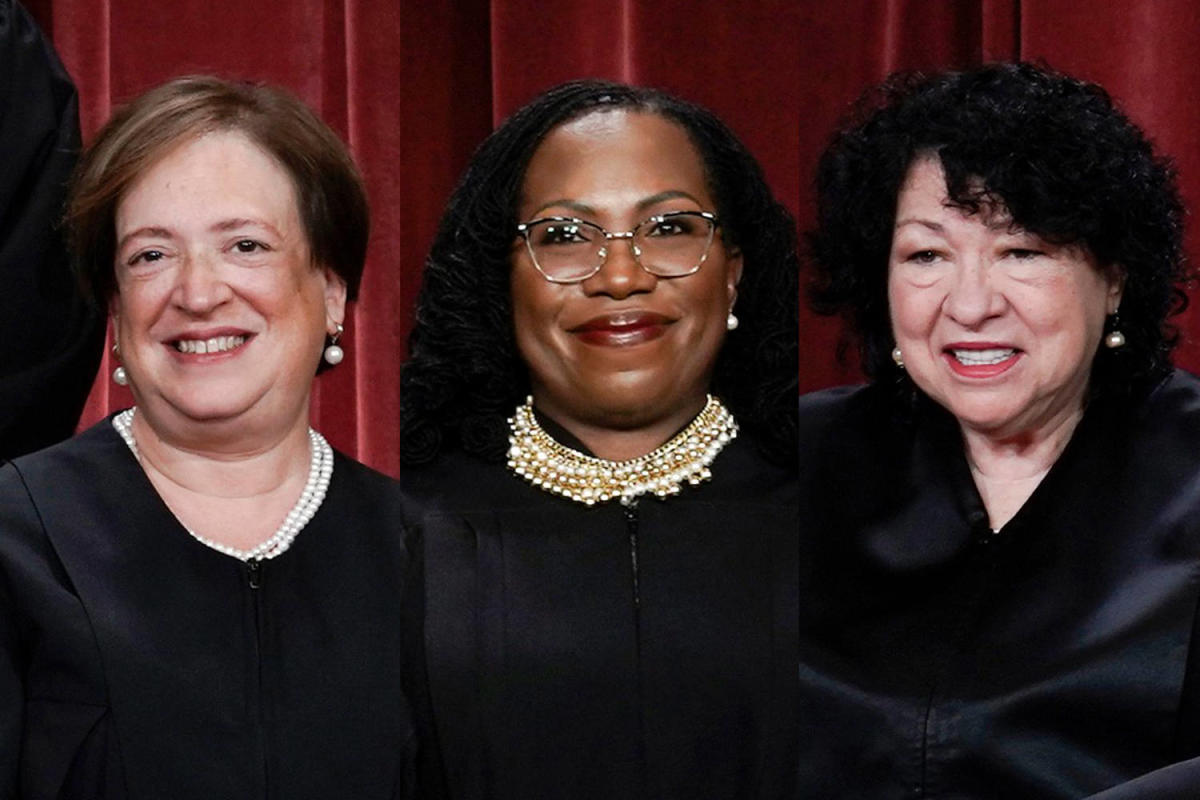WASHINGTON — Liberal Judge Sonia Sotomayor appeared visibly upset as she complained last week about a Supreme Court ruling that curtailed the powers of the Securities and Exchange Commission.
She took the relatively rare step of reading a summary of her dissent in open court, expressing her strong feelings about what has been called the “war on the administrative state.”
“We who cherish the rule of law have nothing to celebrate,” she said, emphasizing the word “nothing.”
The ruling was one of three in the final week of the court’s term that affected the powers of federal agencies. All were decided 6-3 on ideological grounds, with the court’s conservatives in the majority.
In all three cases, the liberal justices went out of their way to draw attention to their broader concerns about the way the court is eroding the authority of federal agencies to regulate in areas such as the environment, worker safety and consumer protection.
Actually, they took turns doing it.
After Sotomayor on June 27, it was Judge Elena Kagan‘s moment in the spotlight the next day. She wrote the dissenting opinion as the court overturned a 40-year precedent that respected federal agencies when the meanings of statutes are ambiguous.
Like Sotomayor, she read a lengthy summary of her opinion, saying the ruling will be a “tremendous shock to the justice system” because it casts doubt on long-held interpretations of the law.
Then came justice Ketanji Brown Jackson Monday morning.
While most awaited the court’s landmark ruling that would grant former President Donald Trump some immunity for his actions as president, the court handed businesses another victory by making it easier to file lawsuits challenging historical actions by government agencies.
Following the example of her liberal colleagues, Jackson, sometimes sounding exasperated, also read her dissent from the bench. Conservative Justice Amy Coney Barrett, who wrote the majority opinion, looked on intently.
Jackson said the implications of the ruling are “simply staggering,” in part because it will lead to a flood of lawsuits that could paralyze federal agencies.
The fact that the liberal justices were completely united and each wrote their own opinion led to “a remarkable series of dissents,” said John Elwood, an attorney who argues cases before the court.
Sam Sankar, a lawyer at Earthjustice, an environmental organization, said: “The dissidents didn’t disband. They focused their energy. I think they worked together. I think this was a team effort.”
But Jennifer Mascott, a professor at Catholic University’s Columbus School of Law and an NBC News contributor, said it was a “fool’s errand” to read much into the uniform nature of the dissents, noting, among other things, that it is common for caseloads to be shared among judges.
It is relatively rare for judges to read out summaries of dissenting opinions from the judiciary if they are particularly dissatisfied with the decisions, but it has been happening for years.
One judge who impressed with her dissenting opinions was Ruth Bader Ginsburgwho also spent her time as part of a liberal minority. Among the powerful dissents she read on the court was one challenging the court’s 2013 ruling that gutted a key provision of the Voting Rights Act.
Ginsburg is known for her decorative collars, called jabots. She even said she wore a special one when reading a dissenting opinion.
In a 2009 speech, she explained the value of reading dissenting opinions from judges.
“It indicates that, according to the dissidents, the court’s opinion is not only incorrect but seriously misplaced,” she said.
As for the dissents themselves, they can be persuasive both inside and outside the court, Ginsburg said. Sometimes the draft of a dissent causes the justices to reconsider it, and the proposed ruling never makes it into the court.
Other opinions, Ginsburg added, are an appeal to what Chief Justice Charles Evans Hughes called “the intelligence of a future day.”
And some are calls to action, like Ginsburg’s dissent in a 2007 sex discrimination case against Goodyear Tire employee Lilly Ledbetter. She wrote that Congress should change the law, and two years later, President Barack Obama signed the Lilly Ledbetter Fair Pay Act.
Jackson made a similar proposal in her dissent Monday, saying Congress could simply amend the law at issue to ensure that newly formed companies cannot challenge agency rules that have been in place for years.
“Congress still has an opportunity to address this absurdity and prevent the chaos that lies ahead,” she wrote.
The impact of oral dissent is somewhat mitigated by the fact that while the court now livestreams audio of its oral arguments, audio of opinion announcements is not broadcast live. It is released later for archival purposes.
Carolyn Shapiro, a professor at Chicago-Kent College of Law, said the liberal justices may need to take their cases to the streets and publicly criticize the court’s decisions to reach a wider audience.
“Doing something like publicly criticising the court in another forum would be a big change for them and therefore newsworthy,” she said.
This article was originally published on NBCNews.com
